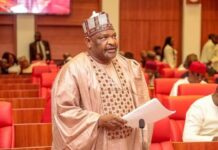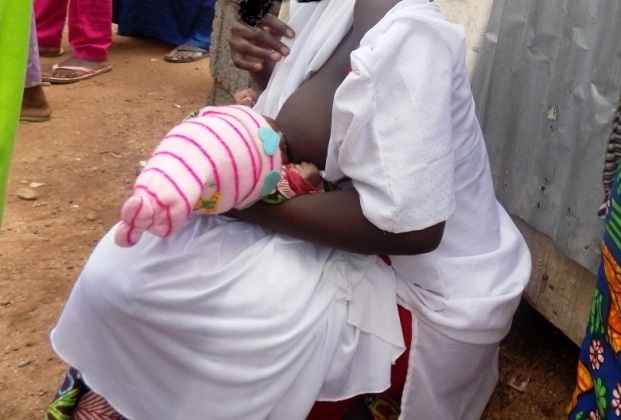By Ndidichukwu Odoh
As the World commemorates 2019 Breastfeeding Week in August 1-7 the Developing-8 countries (D-8) Organization for Economic Cooperation, has called for improved investment in low- and middle-income countries alike, to promote breastfeeding.
The D-8 Health and Social Protection (D-8 HSP), recognizes the benefits of breastfeeding for individuals, families and societies, which includes ending preventable child deaths, improving maternal and child health, boosting educational attainment, and increasing productivity globally.
The Theme of the 2019 breastfeeding week is “Empower Parents. Enable Breastfeeding.”, to raise awareness of the links between breastfeeding and Sustainable Development Goals (SDG)- the universal goals adopted by world leaders in 2015 which aims to end poverty, fight inequality and tackle climate change by 2030. D-8 HSP encourages the world and its Member countries to see breastfeeding as a universal solution which provides opportunity to everyone for a fair start in life, and improves the health, wellbeing and survival of women and children around the world.
Breastfeeding benefits not only individual children and families, but also the entire economy. The World Bank’s new Investment Framework for Nutrition notes that every dollar invested in promoting breastfeeding can generate a return of $35 in economic benefits. Breastmilk also helps to prevent pneumonia and diarrhoea, two of the leading causes of death for children under five. Babies who are breastfed are 14 times less likely to die than those who are not fed breastmilk
Breastfeeding reduces the incidence of death in new-born babies. As new-borns account for nearly half of all deaths of children under five; the longer breastfeeding is delayed, the higher the risk of death in the first month of life. Delaying breastfeeding by 2-23 hours after birth increases the risk of dying in the first 28 days of a baby’s life by 40 per cent.
“improving breastfeeding practices is important to us in the D-8 HSP because it makes the world healthier, smarter, and more equal. Our goal is to support our member states to reach the Health SDGs and breastfeeding is a critical key in achieving it, especially the SDG 2 and SDG3 which include ending hunger, improving nutrition and promoting health and wellbeing.” said Dr. Ado Muhammad, Special Adviser and Head Health and Social Protection secretariat.
Ado said “Breastfeeding is one of the keys to reducing under-five mortality. Increasing rates of breastfeeding will save more lives, it is cost effective, so we consider it as an easy health innovation and best practice that could reduce infant and child mortality as well as improve family planning”
In this era of Sustainable Development, the D-8 HSP, encourages its member countries to align with the programs that promote breastfeeding as a cost-effective way to save and improve the lives of children everywhere, yielding lifelong health benefits for infants and their mothers.
The Program also emphasizes that breastfeeding also improves long-term health, mental ability, decreasing the risk of non-communicable diseases, including childhood asthma and obesity. It can reduce the chance of diabetes and heart disease later in life. And longer duration of breastfeeding protects maternal health, helping reduce the risk of breast and ovarian cancers.
ABOUT THE D-8 HEALTH AND SOCIAL PROTECTION PROGRAMME:
A new initiative launched by the D-8, following approval by the organization’s 41st Council Meeting in November, 2018. The Health and Social Protection Initiative is designed to incorporate health programs into the D-8’s Portfolio.
Developing 8 is an organisation representing Bangladesh, Egypt, Nigeria, Indonesia, Iran, Malaysia, Pakistan and Turkey with a combined population of approximately 1 billion and represents 60% of all Muslims, or close to 13% of the world’s population, covering an area of 7.6 million square kilometres and, 5% of world land area.
Though the D-8 has made significant progress and investments in many other sectors such as trade, agriculture and food security, energy, transportation and industrial cooperation, health which is central to development has not been fully explored to reap in desired economic prosperity.
The overall objective of the D-8 Health and Social Protection programme is to support member countries to expedite the attainment of SDGs 1, 2 and 3, with a view to enhancing their Gross Domestic Products (GDPs) through resource mobilization, technical assistance and peer review mechanisms.
The operation and scope of work of the D-8 Health Secretariat is to assist Member States to achieve Universal Health Coverage as well as accelerate progress towards the attainment of the SDGs for the D-8’s one billion population.
























